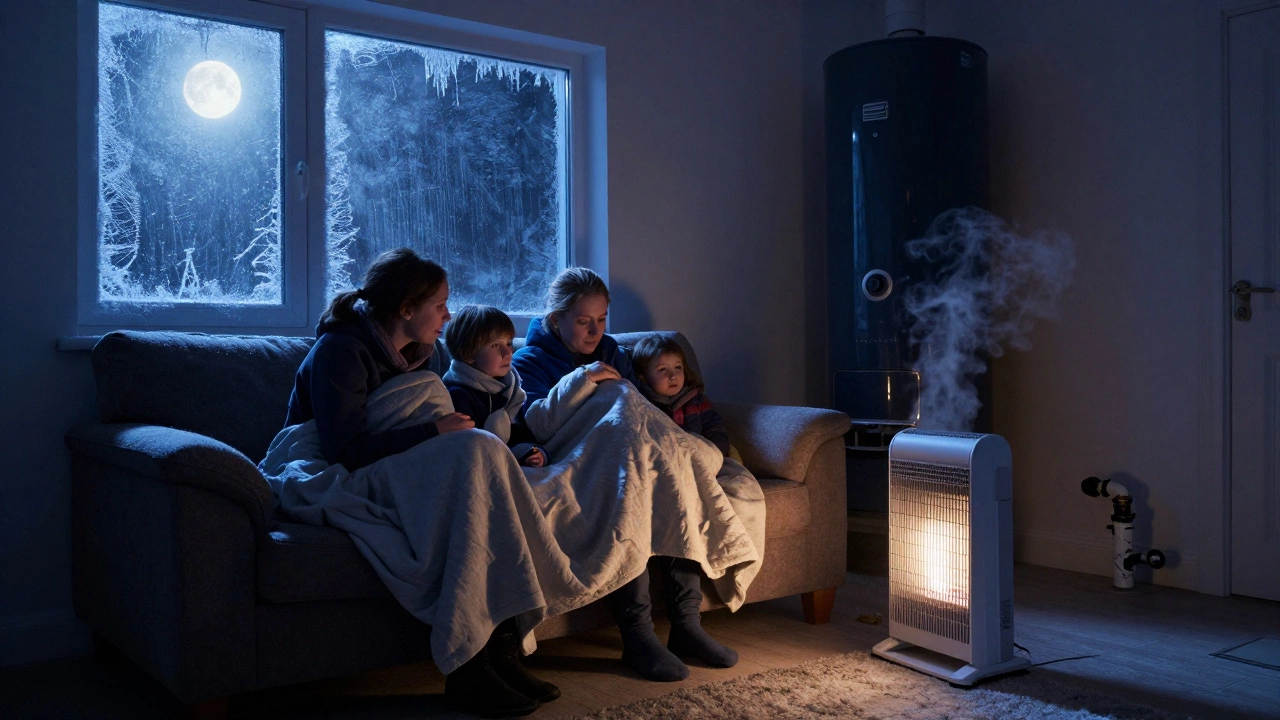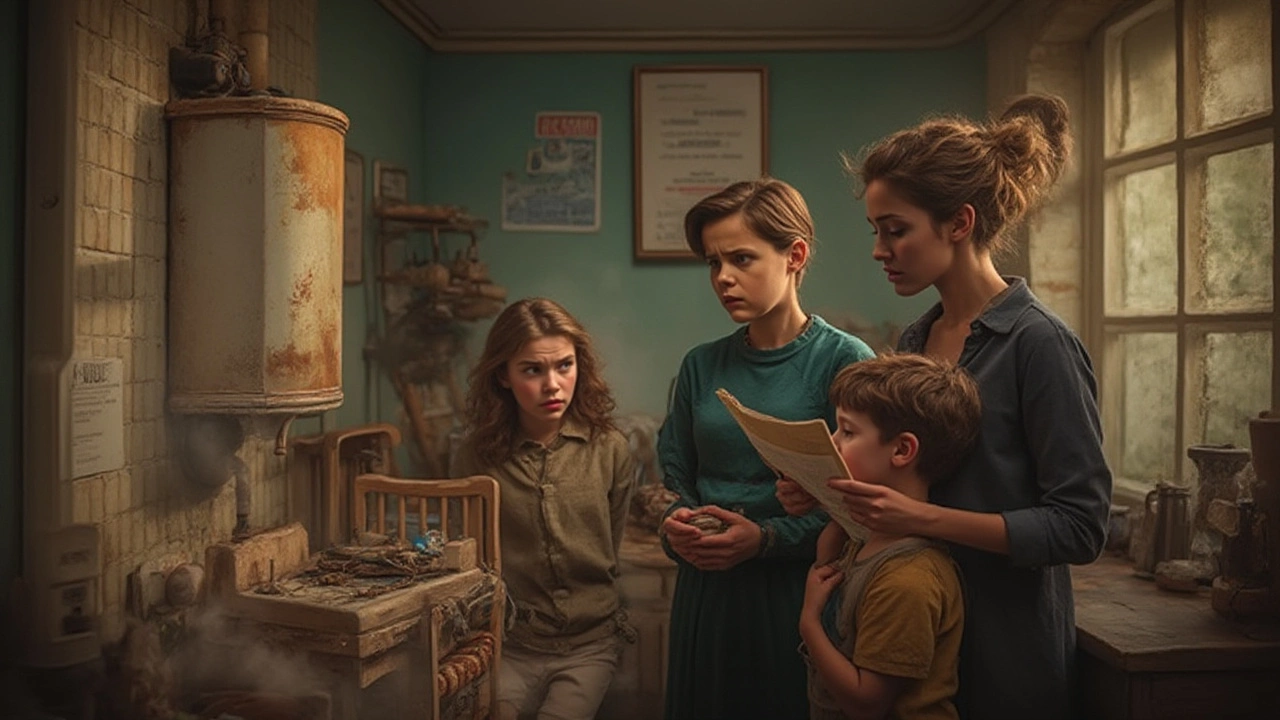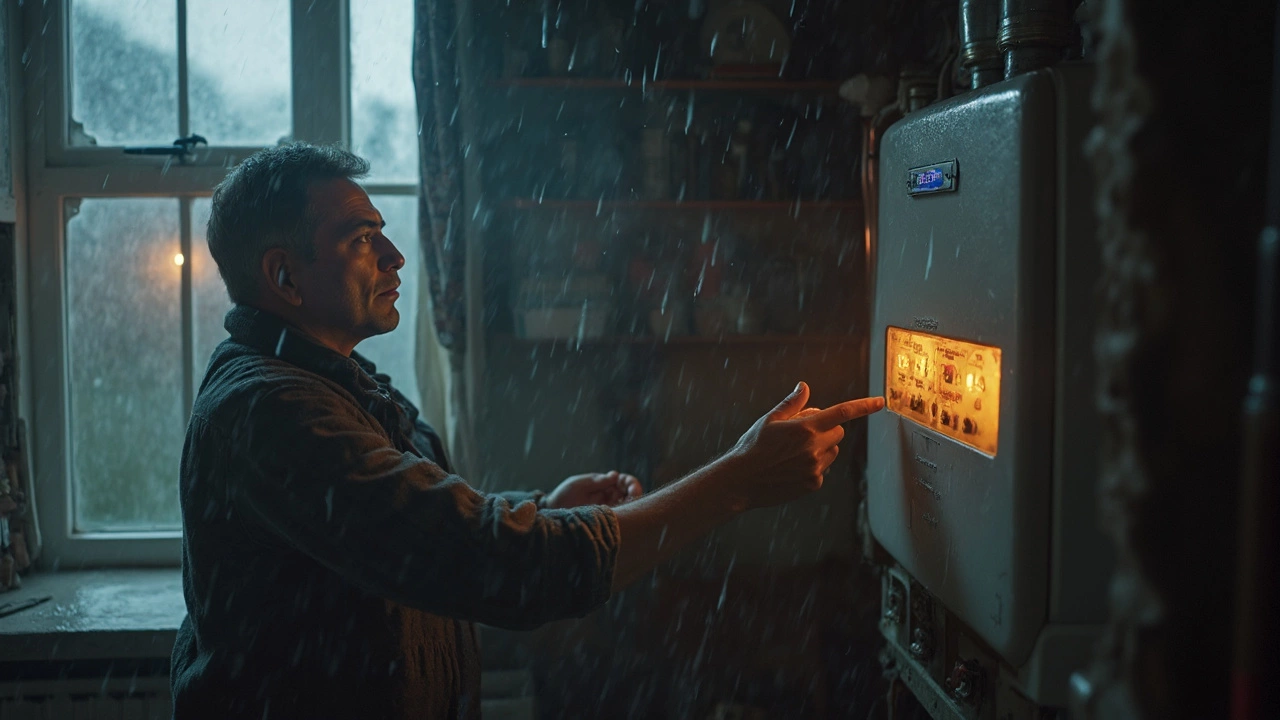A broken boiler in winter isn't just inconvenient-it's dangerous. Learn when it's an emergency, what risks to watch for, and exactly what to do if your heating fails. Stay safe this winter.
Boiler Safety: Simple Steps to Keep Your Home Warm and Secure
When the weather turns cold, the last thing you want is a boiler that stops working or, worse, puts your family at risk. The good news is that staying safe is mostly about staying on top of a few easy tasks. Below you’ll find clear, no‑fluff advice you can start using today.
Why Regular Boiler Service Matters
A yearly service does more than just keep the heat flowing. A qualified engineer checks for gas leaks, tests the pressure valve, cleans the heat exchanger and looks for signs of wear. Skipping this appointment means small problems can grow into expensive repairs or dangerous carbon‑monoxide leaks. Think of the service as a health check‑up for your boiler – quick, cheap and life‑saving.
DIY Safety Checks You Can Do Every Month
Even if you’re not a professional, a few simple checks are safe and useful. First, look at the pressure gauge; it should sit between 1 and 1.5 bar when the system is cold. If it’s lower, you might need to top it up using the filling loop – most manuals have a two‑minute guide. Second, listen for unusual noises like knocking or whistling, which can signal kettling or trapped air. Finally, sniff the area around the boiler. Any smell of gas or a sudden metallic scent is a red flag – turn off the gas supply if you can and call a certified engineer immediately.
Another easy step is testing your carbon‑monoxide (CO) alarm. If you don’t have one, install it near the boiler. A working alarm will beep loudly if CO builds up, giving you precious minutes to get fresh air and shut the system down.
Don’t forget to keep the boiler’s surroundings clear. Storing flammable items or covering ventilation grills can cause overheating and raise fire risk.
When to Call a Professional
Some issues are best left to the experts. Persistent no‑hot‑water problems, repeated pressure loss, leaking water, or error codes on the display all need a qualified engineer. Trying to fix a gas valve or internal wiring yourself is illegal in the UK and can void your warranty.
Also, if your boiler is older than 15 years, consider a full replacement rather than endless repairs. New models are more efficient, produce less CO and often come with extended service plans.
Quick Checklist for Boiler Safety
- Schedule a professional service at least once a year.
- Check pressure gauge monthly; keep it between 1‑1.5 bar.
- Listen for strange noises and watch for leaks.
- Test CO alarm each quarter.
- Keep the area around the boiler clear and ventilated.
- Don’t attempt gas‑related repairs yourself.
- Consider replacement if the boiler is over 15 years old or constantly breaking down.
Sticking to this routine means fewer emergencies, lower energy bills and peace of mind knowing your home stays warm without hidden dangers. If you ever feel unsure, a quick call to a local, Gas Safe‑registered engineer will keep everything on track.
Remember, boiler safety isn’t a one‑time task – it’s a habit. Take a few minutes each month, book that annual service, and you’ll enjoy reliable heat all winter long.
Wondering if your 40 year old boiler is safe? Discover the real risks, surprising facts, and practical safety tips to protect your home and family.
Skipping a boiler service isn't just a small risk—it can turn into a nightmare with higher bills, cold showers, or even dangerous leaks. This article breaks down what really happens when you ignore your boiler and how it can affect your home and wallet. You'll learn about the warning signs, safety issues, and hidden costs. Get practical tips that really help. Discover why a yearly check-up is way more important than most people think.



